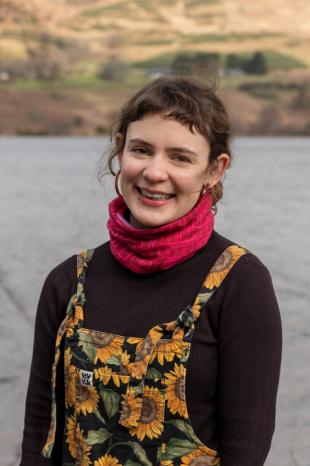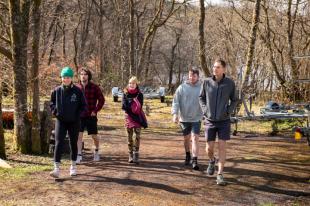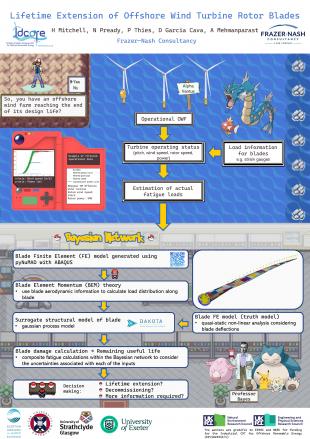IDCORE as a Career Step
Hannah already had an established career in the renewables sector when she joined IDCORE, having spent more than two and a half years working for a wind turbine certification company in Germany. Her previous work had involved turbine type and project certification, along with lifetime extension work for onshore turbines and structural assessment of wind turbine components both onshore and offshore, as part of which she had become fully trained in safety procedures for offshore operations.
Although Hannah was enjoying the work, and particularly the opportunity to work in the renewables sector, she was starting to look for the next step in her career. She started looking for an opening that would allow her to gain a broader understanding of the offshore renewables sector, and in a research setting where there is more potential for personal control of your work rather than it being solely defined by specific client requirements. Having studied for her first degree at the University of Edinburgh, an MEng in mechanical engineering, she was also looking to move back to the UK and spend some more time in that city.
IDCORE seemed like the perfect opportunity. Studying for an EngD with its focus on industrial needs seemed a good compromise between Hannah’s industrial experience and a more purely academic PhD, and the training offered in the first year of the course looked like it would provide effective broader grounding in the industry.
Hannah’s Project
Hannah’s project is sponsored by the Frazer-Nash Consultancy and she is now based in Bristol, where she has become an integral member of their structural design and analysis team. She is helping them to explore the potential for delivering a probabilistic approach to structural integrity and component life assessment into the offshore wind sector, with a particular focus on lifetime extension of turbine blades.
The project is an excellent fit to Hannah’s previous experience in the industry, and it was this rather than the company or location that attracted her to the project. However, at the project selection day, she also liked the people she met and the way that they wanted her to move to Bristol and become fully integrated into the team.
Hannah is extending an existing Frazer-Nash ‘Bayesian Network’ methodology to analysis of the structural integrity of offshore wind turbines. She is building a framework that can be applied to data from operational turbine blades and will then use inference to analyse the remaining life of these components. This approach takes uncertainties into account and provides a continually updated model. It is also allowing Hannah to gain a more detailed understanding of the level of conservatism in the safety factors that have historically been used by the industry. She has already submitted a paper on this work to a conference that will take place in December 2023, starting the process of promoting this new capability for Frazer-Nash.
IDCORE Highlights
Like many of the students who go through the course, a real highlight from the first year of training was the Marine Energy and Environment Course with the Scottish Association for Marine Science (SAMS) in Oban. It exposed Hannah to an understanding of marine biology that she had not previously received despite having worked in the industry for some time. It has also helped with some voluntary work she is doing on a nature positive wind farm initiative.
There have been additional opportunities to visit operational sites including a trip offshore to the Seagreen Wind Farm. All of this training has been enhanced by undertaking alongside others in a cohort that has become an important support network now that Hannah is working with her sponsoring company.









